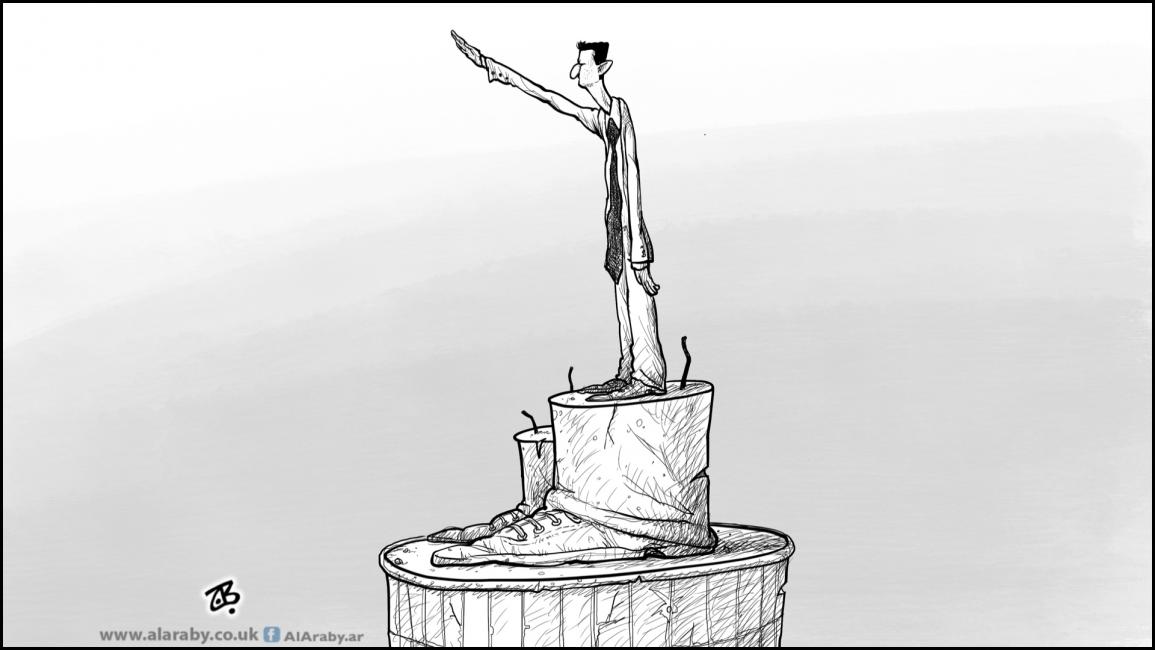Bashar al-Assad’s regime is characterized by a volatile blend of violence and manipulation. Bolstered by international support, Assad has acted with impunity, believing his power is unassailable, regardless of the toll on Syria.
At Arab conferences, Assad adopts the persona of a carefree tourist, detached from the grim reality facing his country. This demeanor, however, conceals a calculated strategy. He understands that his regime’s survival depends on maintaining a delicate balance amid shifting regional dynamics.
Israel’s expansionist ambitions, paired with its aggression toward Lebanon and Hezbollah, suggest a broader plan to reshape the Middle East, with Damascus as a key entry point. Meanwhile, Tehran is pressured to relinquish its nuclear aspirations and distance itself from the eastern axis to preserve its influence.
Assad is keenly aware of the shifting regional power dynamics. While his policy of strategic disengagement has shielded him thus far, deeper involvement in the escalating conflict could prove disastrous. Unlike his father, who adeptly balanced regional and global interests, the weakened state of Syria today makes such maneuvering impossible.
Assad’s advanced stage of political decline is evident. Having ascended to power through a swiftly amended constitution, he erroneously believes he can negotiate favorable terms. Yet, Syria’s strategic position is increasingly exploited by external actors, exposing his regime’s vulnerabilities.
The social fabric of “Assad’s Syria” is riddled with deep divisions, fueling ongoing cycles of violence. A sudden collapse of the regime could create a profound political vacuum, threatening the stability of Syrian society itself.
Maher al-Assad’s Fourth Division Distances Itself from Hezbollah
Assad’s silence during the “Al-Aqsa flood” and his ban on prayers for Palestinians in Syrian mosques are revealing. His adherence to the 1974 secret security agreement with Israel—preventing any group from using Syrian territory to strike Israel—highlights his priorities.
Since 2012, Hezbollah’s presence in Syria has fostered parallel structures, empowering sectarian and extremist militias. Iran uses these forces to protect its regional interests and strengthen its negotiating position.
As regional tensions rise, Assad treads a dangerous path. Will his silence preserve his regime? Can he sustain “useful neutrality” in the face of Israeli warnings conveyed through the UAE? According to The Wall Street Journal, Assad has assured Iran that he will avoid full-scale war with Israel.
While Israel has not seriously pursued the removal of Assad’s regime, despite concerns over Iranian influence, any violation of established red lines by the “resistance axis” would be unacceptable. Russia’s alignment with Israel is evident in the targeted strikes on Iranian assets in Syria, careful to avoid provoking Russia itself.
Syria’s future remains uncertain: will it face repercussions for resisting Israeli expansion or be rewarded for its neutrality? Assad’s choices are limited—withdraw, wait, and adapt to normalization pressures to retain power.
In the worst-case scenario, Iran could strike a fatal blow to Assad’s regime by opening the Golan front without his consent. Israel would perceive this as a direct threat, potentially leading to Assad’s downfall.
This article was translated and edited by The Syrian Observer. The Syrian Observer has not verified the content of this story. Responsibility for the information and views set out in this article lies entirely with the author.


